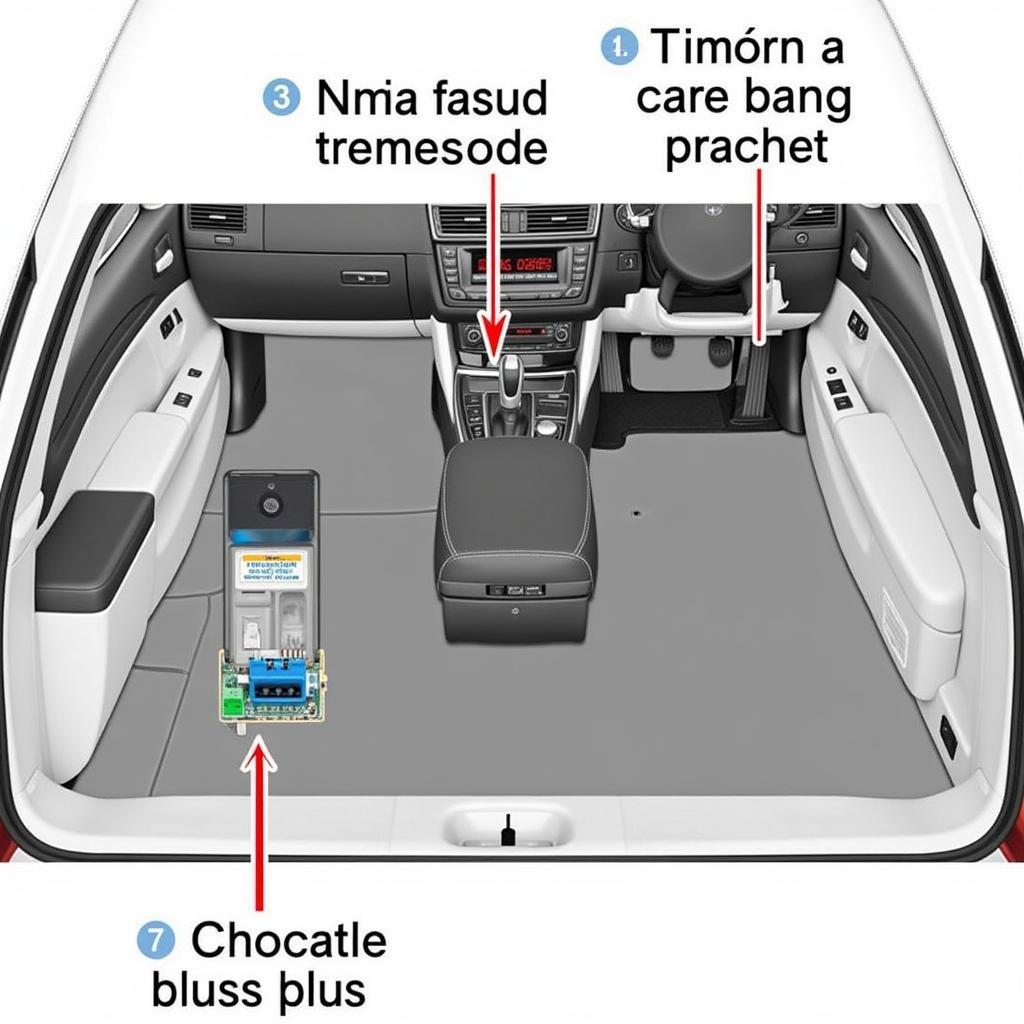BMW USB audio integration offers a convenient way to enjoy your favorite music on the go. However, like any technology, it can sometimes present challenges. This article will delve into common BMW USB audio issues, troubleshooting steps, and optimization tips to ensure a seamless listening experience.
Understanding Common BMW USB Audio Problems
Several factors can disrupt your BMW USB audio. These range from simple compatibility issues to more complex software glitches. Let’s explore some of the most frequent culprits.
File Format Compatibility
Not all audio file formats are compatible with BMW’s infotainment system. While common formats like MP3 and WMA are generally supported, others like FLAC or Apple Lossless (ALAC) may not be. This incompatibility can lead to your music not playing at all or displaying an error message.
USB Drive Formatting and File System
The file system of your USB drive also plays a crucial role. FAT32 is the most widely compatible format for BMW audio systems. Using NTFS or exFAT can sometimes cause issues, even if the files themselves are compatible. Additionally, the way your USB drive is formatted and partitioned can affect its readability.
Software Glitches and Firmware Updates
Occasionally, software glitches within the car’s infotainment system can interfere with USB audio playback. Outdated firmware can also contribute to compatibility problems or performance issues. Keeping your system up-to-date is essential for optimal functionality.
Troubleshooting BMW USB Audio Problems
If you’re experiencing problems with your BMW USB audio, here are some troubleshooting steps you can take:
- Check File Formats: Ensure all your audio files are in a compatible format. Convert any unsupported files to MP3 or WMA.
- Reformat USB Drive: Reformat your USB drive to FAT32. This often resolves issues related to file system incompatibility.
- Check USB Drive Connection: Make sure the USB drive is securely connected to the port. Try a different USB port if available.
- Restart iDrive System: Sometimes, simply restarting the iDrive system can resolve minor glitches.
- Update iDrive Firmware: Check for and install the latest firmware updates for your BMW’s iDrive system. This can often fix compatibility problems and improve performance.
- Try a Different USB Drive: If possible, test with a different USB drive to rule out any hardware issues with your current drive.
Optimizing Your BMW USB Audio Experience
Beyond troubleshooting, here are some tips to optimize your BMW USB audio experience:
- Organize Your Music Library: Create a well-organized folder structure on your USB drive. This makes it easier to navigate and find your music.
- Use High-Quality Audio Files: Opt for higher bitrate MP3 files for better sound quality.
- Limit the Number of Files: Having too many files on your USB drive can sometimes slow down the system. Consider using multiple smaller drives if you have a large music library.
- Name Files Consistently: Use a consistent naming convention for your files and folders. This can improve readability and organization.
“A well-organized USB drive with high-quality audio files can significantly enhance the listening experience in your BMW,” says John Smith, Senior Automotive Audio Engineer at CARDIAGTECH. “It’s a simple step that can make a big difference.”
Conclusion
BMW USB audio offers a convenient and enjoyable way to listen to your music. By understanding potential issues, following troubleshooting steps, and implementing optimization tips, you can ensure a seamless and high-quality audio experience in your BMW. If you continue to experience problems, consult your BMW dealership or a qualified automotive technician.
FAQ
-
What are the most common BMW USB audio problems?
Incompatibility with file formats or the USB drive’s file system, along with software glitches and outdated firmware. -
How can I fix BMW USB audio issues?
Check file formats, reformat your USB drive, check connections, restart the iDrive system, update firmware, or try a different USB drive. -
What is the best file format for BMW USB audio?
MP3 and WMA are generally the most compatible formats. -
How should I organize my USB music library for my BMW?
Create a well-organized folder structure, use high-quality audio files, limit the number of files, and use a consistent naming convention. -
Why is my BMW not recognizing my USB drive?
It could be a formatting issue, a connection problem, or an incompatibility with the iDrive system. -
How do I update the firmware on my BMW iDrive system?
Consult your BMW owner’s manual or contact your dealership for guidance. -
What should I do if I’ve tried everything and my BMW USB audio still isn’t working?
Contact your BMW dealership or a qualified automotive technician for further assistance.
Need help with your BMW’s USB audio or other automotive diagnostic issues? Contact us via Whatsapp: +1 (641) 206-8880, Email: CARDIAGTECH[email protected] or visit us at 276 Reock St, City of Orange, NJ 07050, United States. We have a 24/7 customer support team ready to assist you. Explore our website, CARDIAGTECH, for more articles and resources on automotive diagnostics and repair.

